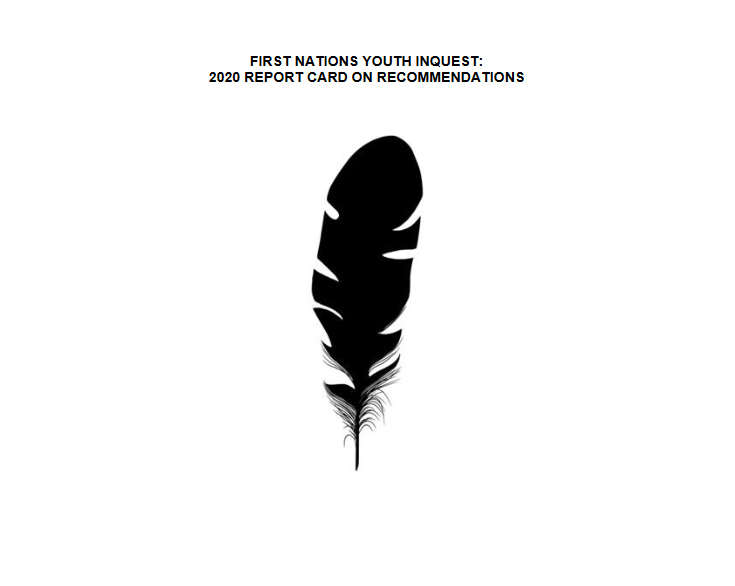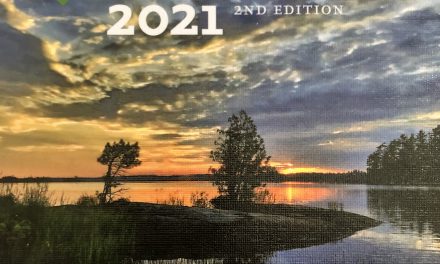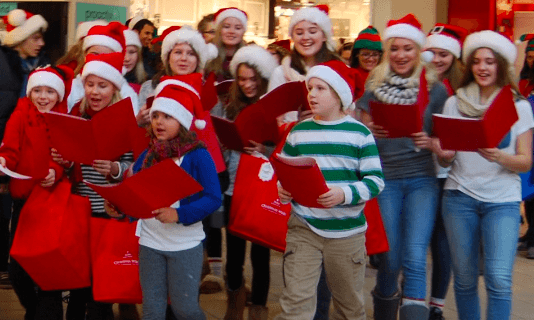Long-Term Funding Needed, Lawyers for Students’ Families Say
By Matt Prokopchuk
Lawyers for six of the seven families of Indigenous students whose deaths were the subject of a months-long inquest in Thunder Bay say despite much work being done on many of the jury’s recommendations to prevent similar deaths, progress is slowing and long-term funding and other commitments will be key to dealing with larger systemic issues.
Aboriginal Legal Services released its year-four report card on September 30 into how various levels of government, police, and Indigenous political, service, and educational authorities have responded to each of the 145 recommendations made by the inquest jury in 2016. The first report card was issued in 2017 and the lawyers have committed to releasing annual reports until all recommendations are completed.
“Much of [the work has] been done, but much of the important work still has to be done,” Jonathan Rudin, the program director for Aboriginal Legal Services, said in a video statement released Wednesday morning. “Schools in Thunder Bay still need work, there needs to be permanent funding so that schools can develop with some assurance that funding is there on a year-to-year basis.”
Jethro Anderson, 15, Curran Strang, 18, Robyn Harper, 19, Paul Panacheese, 21, Reggie Bushie, 15, Kyle Morrisseau, 17, and Jordan Wabasse,15, all died in Thunder Bay between November 2000 and May 2011 when they were in the city to get their high school education. Wabasse attended the Matawa Learning Centre when he died, while the other six young people went to school at Dennis Franklin Cromarty High School.
“Each one of these youth and their families made the decision that education was important, that education was key to their success,” Caitlyn Kasper–a staff lawyer with Aboriginal Legal Services who was involved with the inquest–said in her Wednesday video statement. “Each one of these youth and their families made the monumental decision to move to Thunder Bay, outside of their northern community, and away from all of their loved ones in order to achieve this goal.”
The report card uses a grading system to measure the progress the respondent parties to the inquest are making on the short, medium, and long term recommendations the jury assigned to them. Under the formula this year, parties are effectively penalized most harshly for having made no progress on short-term goals while being rewarded for completing or making progress on long-term recommendations. Aboriginal Legal Services noted that several recommendations marked as short term, or ones that should have been completed by now, still have not been met by several parties. Overall, progress was graded a B+ in the 2020 report, which is up from a C+ in 2017, but down from A- last year. The individual parties were also graded individually:
- Government of Canada: C+ (2019: B+ 2017: D)
- Government of Ontario: B- (2019: B+ 2017: C+)
- City of Thunder Bay: B (2019: A 2017: C+)
- Nishnawbe Aski Nation: A- (2019: A- 2017: C+)
- Matawa Learning and Care Centre: A+ (2019: A- 2017: A-)
- Northern Nishnawbe Education Council and Dennis Franklin Cromarty High School: A+ (2019: A+ 2017: A-)
- Keewaytinook Okimakanak: A+ (2019: A+ 2017: A)
The Thunder Bay Police Service did not receive an official grade, like last year, as the scope of the inquest could not examine the extent to which police properly investigated the students’ deaths. The 2018 report by the Ontario Independent Police Review Director determined that there were significant issues with those investigations and called for four of them to be reopened. “Once that work is finished, we will be consulting with Indigenous organizations in and around the Thunder Bay area to get their sense of whether the Thunder Bay Police Service has now regained the trust of the community, and if that is the case, we will go back to issuing grades for the Thunder Bay Police Service,” Rudin says.
Overall, just over 60% of the recommendations have been completed and about one third are in progress, while there’s been no progress on 6%. After year one, only 15% had been completed, while nothing had started on almost a quarter of the recommendations. The federal government had the lion’s share of the recommendations with 81, Rudin says, including the bulk of the long-term, “essential” ones that require significant planning and spending on improving education, housing, health care, and other necessities in Indigenous communities. Those commitments will be key going forward.
“We have to deal with the problems that we have, as a country, ignored for years and years and years: substandard housing, substandard education, non-potable water [in First Nations],” Rudin says. “We want to continue to see progress.”
He pointed out that one recommendation, tasked to Ottawa, that has been completed was secure funding for orientation and other supports for students coming to Thunder Bay, as well as resources to help students should they find themselves in a crisis situation.
“We must keep going, we must keep continuing to do better,” Kasper says. “We have a responsibility to each other to ensure that every child is given an equal opportunity to learn and to be safe while doing so.”
“The status of the completed recommendations reminds us of how far we’ve come and it also reminds us that we can’t stop now.”














